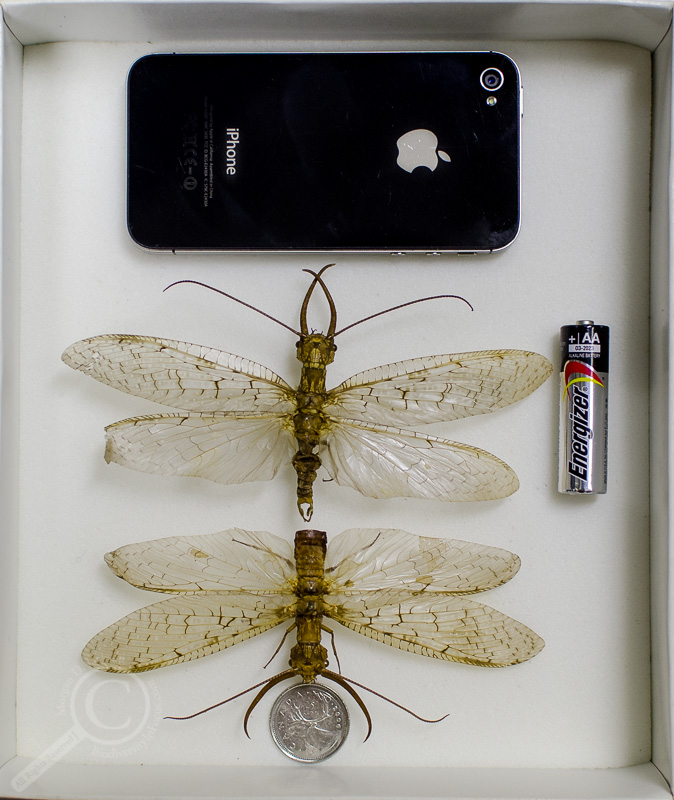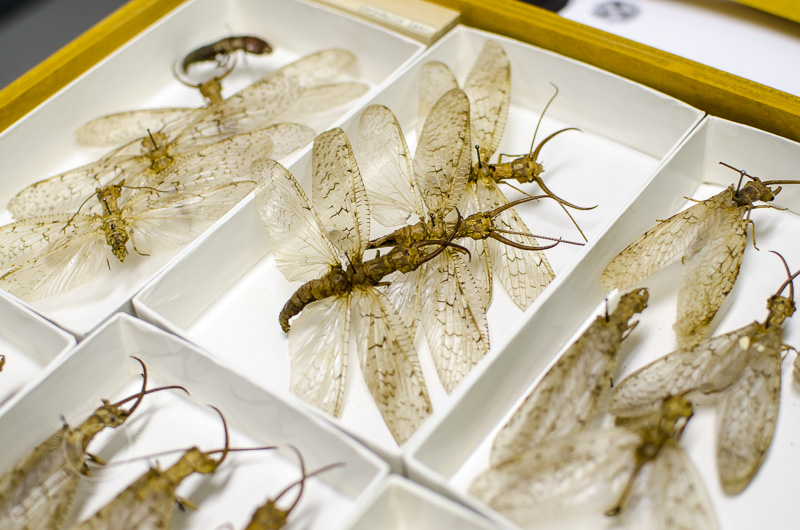If you follow this blog, you’ve probably already heard about the OMG LARGEST AQUATIC INSECT FOUND IN CHINA!!!1! that’s been making the rounds this week. If not, take your pick of news outlets covering this random and bizarre press release.
As is the case whenever insects break into the mainstream news cycle, I’ve had various interpretations of the story sent to me by text message, Facebook, Twitter, passenger pigeon, etc. While I certainly appreciate friends, family and followers making sure I saw it, I must say I was a little dumbfounded why, of all the newsworthy insect stories this week, this is the one that went viral.
After thinking about it a little longer, I came to the shocking conclusion that it’s probably because it’s a huge insect (d’uh), and more importantly, because it was found somewhere that isn’t North America. The latter is important because it automatically has the allure of being exotic, and something that can only possibly exist outside of our ho-hum existence in boring old North America.
Allow me to let you in on a little secret: there be giants here, too.
In fact, we have our very own gigantic species of Megaloptera (the same group of insects that is currently dominating the mountains of China and clickbait news sites) in eastern North America, Corydalus cornutus.

Two male Corydalus cornutus specimens with various household items, because apparently that’s how scientific measurements are made these days and I didn’t have any eggs in the lab. Also, Canadian quarters are the same size as American quarters in case anyone thinks I’m pulling a fast one with funny money.
Not only do we have such monster insects in North America, they can often be found in your neighbourhood! These two were collected in Guelph, Ontario, less than an hour outside of Toronto.
Why exactly is a slightly larger insect (the specimens pictured here have a wingspan of 15cm while the Chinese specimen was 21cm) so astounding to people when something larger than their iPhone could literally fly into their life any moment now*? For one, dobsonflies depend on clean streams and rivers to survive, and if your urban watershed has been degraded or polluted, then your chances of going toe-to-toe with one of Nature’s Giants aren’t going to be great. Add to that the fact that they’re generally more active at night and you have a phantom that can only conceivably be found in far away places and comic books.
It just serves as another reminder that just because an insect is massive, don’t assume you can’t find something similar for yourself close to home. Also, giant insects with their wings spread create headaches for insect museums…
*- I had a female Corydalus nearly drop on my head while walking the dog in downtown Guelph late at night a few summers ago. I’m not sure who was more startled, me, the dog, or lady dobsonfly!


Looks like CBC has done their research and pooh-poohed the “largest” claim. I wonder if CBC posted their article after you posted your blog? Good to see at least one news source did not just pick up the original news story and throw it at their readership! Only in Canada, eh ???
I am still concerned that all this coverage happened over…a bunch of photos, no publications, from a museum in China, with no actual interviews. Hmmmmm.
Agreed, it’s a bizarre press release or whatever it was. Interesting to see how vapid most of the reporting has been since there was so little information provided with the original photos.